HON 391T: American Dream: Myths and Realities
Registration is open for our summer 2024 colloquium!
Register Now for Summer!
Date/Time: T/R 9:30-10:45
Credits: 3
Instructor: Dr. Maria Akrabova
Description: In this colloquium, students will examine historical and contemporary artifacts such as political documents, food, poetry, clothing, video, fiction, and non-fiction from the perspectives of cultural, social, political, and personal forces that shaped each artifact. Specific artifacts from the 19th and 20th centuries will include such items as Vietnamese paintings, Romanian eggs, Indian clothing, and African children’s books.
After discussions, students will respond creatively in writing to evidence their prediction, comparison, and synthesis of primary documents with their own chosen contemporary artifacts. For the final project, students will synthesize learning of paired historical and contemporary documents into student-created a1tifacts, formal research reports, and class presentations.
Date/Time: M/W 12:30-1:45 (online hybrid-synchronous)
Credits: 3
Instructor: Dr. Adam Graves
Description: This colloquium explores major topics and questions in moral psychology through the lens of the classic Hollywood epics of the 1950’s and 1960’s. Moral psychology names an interdisciplinary field that compares and critically evaluates ethical theories by examining them in light of the behaviors humans exhibit in particular morally charged contexts. Generally speaking, moral psychology traditionally relied upon the resources of mythology, literature, testimony and philosophical thought experiments. Today, the unique narrative dimension of film offers a new and remarkably rich stock of examples from which one can draw fresh insight into the nature of human morality. This seminar will utilize film as a means for examining competing moral theories from a wide range of disciplines and authors, including philosophers (Plato, Aristotle and Kant), theologians (St. Paul, Augustine and Kierkegaard), and psychoanalytic theorist (Freud and Lacan/Zizek). Topics will include: the limits of human freedom and responsibility; competing conceptions of virtue and goodness; the nature and diversity of human error; the relationship between desire and evil; etc.
Date/Time: T/R 11:00-12:15
Credits: 3
Instructor: Dr. Bridget Arend
Prerequisite(s): Enrollment in the Honors Program or Permission from the Honors Director
Description: This course is for students new to the Honors Program and explores current theories, research, and applied practices regarding how people learn. Students analyze research-based strategies and emerging ideas about learning from social and behavioral sciences and include relevant ideas from different disciplines. Offered in a colloquium style, students discuss and debate learning issues, self-assess their own learning strategies, and apply learning theories to their own practice.
General Studies: (Not yet attributed as a General Studies course)
Date/Time: M/W 11:00-12:15
Credits: 3
Instructor: Dr. Julie Clockston
Prerequisite(s): Enrollment in the Honors Program or Permission from the Honors Director
Description: This course is an interdisciplinary inquiry where students learn about the dynamics of social change. Discussions focus on important examples of radical social transformation throughout history and from around the globe. Students explore definitions and theoretical models that can be used to explain and institute change. Students are also encouraged to learn about and connect with community-based organizations involved in creating change and promoting social justice. Some sections of this course may be offered as Service Learning courses.
General Studies: (Social and Behavioral Sciences, Global Diversity)
Date/Time: T/R 12:30-1:45 (Hybrid synchronous in-person)
Credits: 3
Instructor: Dr. Rebecca Ferrell
Prerequisite(s): Enrollment in the Honors Program or Permission from the Honors Director
Description: In this course students learn about the initial discoveries that sparked new scientific fields and about the subsequent revolutions caused by such discoveries. By examining the role of the scientific method in the production of knowledge, students improve their own scientific literacy and learn to critically examine historical scientific experiments. Students investigate the methodologies used, the theories and hypotheses tested, and manipulate original data created in selected experiments. Course discussions also examine the complex relationship between science and world views.
Date/Time: T/R 12:30-1:45 (Hybrid synchronous in-person)
Credits: 3
Instructor: Dr. Rebecca Ferrell
Prerequisite(s): Enrollment in the Honors Program or Permission from the Honors Director
Description: In this course students learn about the initial discoveries that sparked new scientific fields and about the subsequent revolutions caused by such discoveries. By examining the role of the scientific method in the production of knowledge, students improve their own scientific literacy and learn to critically examine historical scientific experiments. Students investigate the methodologies used, the theories and hypotheses tested, and manipulate original data created in selected experiments. Course discussions also examine the complex relationship between science and world views.
Date/Time: M/W 9:30-10:45
Credits: 3
Instructor: Dr. Jason Jordan
Prerequisite(s): Enrollment in the Honors Program or Permission from the Honors Director
Description: This course teaches students how to design and deliver effective, ethical presentations. The ability to adapt to different audiences and contexts – such as professional or public situations – is emphasized. The course provides instruction on and practice of organization, delivery and performance, technology, and research skills. Students also learn effective listening techniques and critical thinking skills. The course empowers students to become successful professional presenters and public speakers.
Note: Credit will be granted for only one prefix: COMM or HON.
Sections of this course may be offered in-person, in hybrid format, or online.
General Studies: Oral Communication
Cross Listed Course(s): COMM 1010
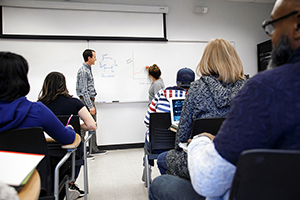
Date/Time: M/W 11:00-12:15
Credits: 3
Instructor: Eileen Mooney
Prerequisite(s): Enrollment in the Honors Program or Permission from the Honors Director
Description: This is a course for students in the Honors Program and addresses the process of writing extended essays supported by research. The course includes an introduction to research methods, practice in critical reading, thinking, and writing across the disciplines, integration of source material, and the conventions of MLA and APA styles of documentation. Students can expect to do a series of shorter writing and research assignments leading to the longer, documented paper and will write reflectively on their writing process.
General Studies: Written Communication
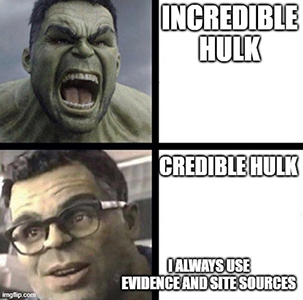
Date/Time: M/W 9:30-10:45
Credits: 3
Instructor: Dr. Kishore Kulkarni
Prerequisite(s): Enrollment in the Honors Program or Permission from the Honors Director
Description: TBA
General Studies: Business/Social and Behavioral Sciences
Date/Time: T/R 9:30-10:45
Credits: 3
Instructor: Rey Hernández
Prerequisite(s): Enrollment in the Honors Program or Permission from the Honors Director
Description: This course offers an introductory analysis of economic decision making in a market system. The roles, actions, and interactions of consumers, firms, and the government are explored. Market failure and government failure are also considered. Microeconomic principles and analysis are applied to current events and problems and are used to explore human behavior.
Note: B- or better required for Honors credit.
General Studies: Business/Social and Behavioral Sciences
Date/Time: T/R 2:00-3:15
Credits: 3
Instructor: Dr. Jessica Parker
Prerequisite(s): Enrollment in the Honors Program or Permission from the Honors Director
Description:Students explore the expectations that shape scientific writing in their various scientific disciplines and employ the correct forms, interpret and synthesize the literature and present their researched writing to various audiences. Students draw on research appropriate for discipline-specific publications and/or conference presentations. During this course, students transform their work into publishable/presentable texts with the guidance of instructor feedback and peer review. This course is ideal for students who are majoring in a science discipline.
Note: B- or better required for Honors credit.
General Studies: Written Communication
Date/Time: Online
Credits: 3
Instructor: Dr. Jane Vigil
Prerequisite(s): Enrollment in the Honors Program or Permission from the Honors Director
Description: This course introduces key concepts and practices of professional writing, including various written genres, research, document design and visual rhetoric, and use of style guides. Students explore the expectations that shape professional writing such as how to employ the correct forms, interpret and synthesize the literature and present their researched writing to various audiences. During this course, students learn to transform their work into sharable documents with the guidance of instructor feedback and peer review. This course is ideal for students to develop and polish writing skills that will be needed for their career.
Note: B- or better required for Honors credit.
General Studies: Written Communication
Date/Time: Thursday, 2:00-4:50 (Hybrid, Synchronous In-person)
Credits: 3
Instructor: Dr. Philip Bernhardt
Prerequisite(s): Enrollment in the Honors Program or Permission from the Honors Director
Description:In this senior experience course, students will have opportunities to synthesize the knowledge, skills, and theoretical constructs learned throughout their undergraduate studies. Students will design an action research project relevant to their field of study, discipline, and/or profession. The course requires students to identify applicable research topics, formulate research questions, analyze the quality and credibility of research, synthesize research to develop and organize a literature review, select appropriate research designs and methods, and develop a research proposal aligned with the elements and requirements outlined by MSU Denver’s IRB process and Human Subjects Protection Program. Students will have the opportunity to present and discuss their research proposals to demonstrate developed expertise.
Note: B- or better required for Honors credit.
Date/Time: T/R 2:00-3:15
Credits: 3
Instructor: Dr. Jessica Parker
Description: Coming soon!
Date/Time: Online
Credits: 3
Instructor: Dr. Jane Vigil
Description: Coming soon!
Date/Time: Thursdays, 2:00-4:50
Credits: 3
Instructor: Dr. Philip Bernhardt
Description: Coming soon!
Honors students can select from general studies options to complete academic course requirements. Many of these options can also fulfill degree program and university requirements.
Credits: 3
Prerequisite(s): C- or better in ENG 1009 or C- or better in ENG 1010 or Appropriate score on the First Year Writing placement or ACT English 27 or SAT Verbal 570 or SAT Evidence-Based Reading and Writing (620) AND Student in the Honors program or approval by the Honors Director
Description: This is a course for students in the Honors Program and addresses the process of writing extended essays supported by research. The course includes an introduction to research methods, practice in critical reading, thinking, and writing across the disciplines, integration of source material, and the conventions of MLA and APA styles of documentation. Students can expect to do a series of shorter writing and research assignments leading to the longer, documented paper and will write reflectively on their writing process.
Note: Because of continual development in research technology and techniques, credits ten years or older, from any institution, will not transfer. ENG 1021 requires a grade of C- or better to fulfill the General Studies requirement.
General Studies: Written Communication
Guaranteed Transfer: GT-CO2
Credits: 3
Description: This course teaches students how to design and deliver effective, ethical presentations. The ability to adapt to different audiences and contexts – such as professional or public situations – is emphasized. The course provides instruction on and practice of organization, delivery and performance, technology, and research skills. Students also learn effective listening techniques and critical thinking skills. The course empowers students to become successful professional presenters and public speakers.
Note: Credit will be granted for only one prefix: COMM or HON.
Sections of this course may be offered in-person, in hybrid format, or online.
General Studies: Oral Communication
Cross Listed Course(s): COMM 1010
Credits: 3
Prerequisite(s): Enrollment in the Honors Program or Permission from the Honors Director
Description: This course is designed to provide students with an understanding of the fundamental concepts of human nutrition, including digestion, absorption, metabolism, and the function of nutrients as they relate to human health and disease.
Note: B- or better required for Honors credit.
General Studies: Natural and Physical Sciences

Credits: 3
Prerequisite(s): Enrollment in the Honors Program or Permission from the Honors Director
Description: In this course students learn about the initial discoveries that sparked new scientific fields and about the subsequent revolutions caused by such discoveries. By examining the role of the scientific method in the production of knowledge, students improve their own scientific literacy and learn to critically examine historical scientific experiments. Students investigate the methodologies used, the theories and hypotheses tested, and manipulate original data created in selected experiments. Course discussions also examine the complex relationship between science and world views.
Note: B- or better required for Honors credit.
General Studies: Arts and Humanities
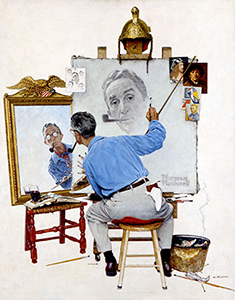
Credits: 3
Prerequisite(s): Enrollment in the Honors Program or Permission from the Honors Director
Prerequisite(s) or Corequisite(s): ENG 1020 or ENG 1021
Description: This course is an interdisciplinary inquiry where students learn about the dynamics of social change. Discussions focus on important examples of radical social transformation throughout history and from around the globe. Students explore definitions and theoretical models that can be used to explain and institute change. Students are also encouraged to learn about and connect with community-based organizations involved in creating change and promoting social justice. Some sections of this course may be offered as Service Learning courses.
Note: B- or better required for Honors credit.
Some sections of this course may be taught as Service Learning.
General Studies: Social and Behavioral Sciences, Global Diversity
Credits: 3
Prerequisite(s): Enrollment in the Honors Program or Permission from the Honors Director
Description: In this course students learn about the initial discoveries that sparked new scientific fields and about the subsequent revolutions caused by such discoveries. By examining the role of the scientific method in the production of knowledge, students improve their own scientific literacy and learn to critically examine historical scientific experiments. Students investigate the methodologies used, the theories and hypotheses tested, and manipulate original data created in selected experiments. Course discussions also examine the complex relationship between science and world views.
Note: B- or better required for Honors credit.
General Studies: Natural and
Physical Sciences
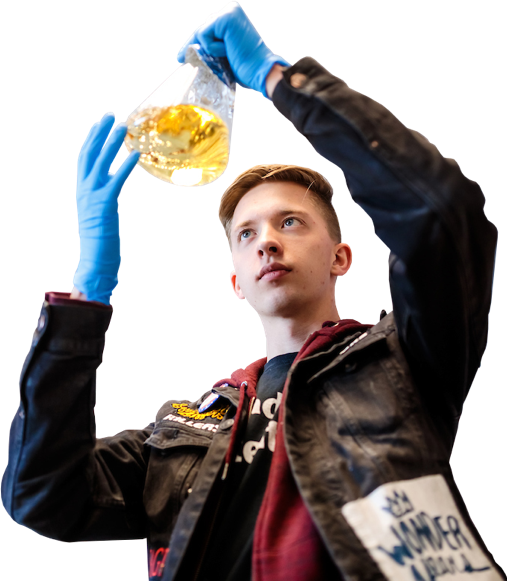
Credits: 3
Prerequisite(s): Enrollment in the Honors Program or Permission from the Honors Director
Prerequisite(s) or Corequisite(s): ENG 1020 or ENG 1021
Description: In the Modern Period, Critical Theory emerges as a decidedly multidisciplinary field that challenges the foundations of the existing social order through in-depth analysis of capitalism, culture, power, the family, and the individual. This course provides an overview of the development of the field of Critical Theory and examines some of its major currents. Topics may include: Psychoanalytic Criticism, Marxist Criticism, Discourse Theory, Feminist Criticism/Gender Studies/Queer Theory, Deconstruction, Race Theory, Postmodernism, New Historicism, Cultural Studies, Narratology, and Digital Media Studies.
Note: B- or better required for Honors credit.
General Studies: Arts and Humanities
Core courses taken by all honors students include 1 Advanced Communications course, 2 interdisciplinary Honors Colloquia, and the Senior Honors Thesis, an independent research and/or creative project normally completed during the senior year. The Senior Honors Thesis can also be completed in conjunction with degree program requirements.
Note: Course offered only in Fall semesters
Credits: 3
Prerequisite(s): ANT 3251
Description: This course requires students to conduct ethnographic research through qualitative methods of data collection, management, interpretation, and analysis. Class discussion, lecture, and student fieldwork will focus on ethnographic research and methods to obtain in-depth information on human behavior and beliefs in their natural settings.
University Requirement(s): Senior Experience
Note: Course offered only in Spring semesters
Credits: 3
Prerequisite(s): COMM 1010 or COMM 1100 or HON 1013 or Permission of Instructor; Students must possess a GPA of 3.3 or higher, or be a member of the MSU Denver Honors Program.
Description: This course prepares students to design and deliver technical and/or professional presentations with an advanced level of skill. Students select one course project or theme and develop several presentations for different audiences and settings-these include: academic conferences and/or technical presentations to professional associations, public presentations on complex topics, and research poster sessions or business expos. This course is useful for students who plan to earn graduate degrees or seek employment in positions that require communication of complex information.
Note: To register for this course, students must be enrolled in the MSU Denver Honors program or have a 3.3 or higher GPA.
Credits: 3
Prerequisite(s): Senior Standing or permission of department
Description: In this senior experience course, students will have opportunities to synthesize the knowledge, skills, and theoretical constructs learned throughout their undergraduate studies. Students will design an action research project relevant to their field of study, discipline, and/or profession. The course requires students to identify applicable research topics, formulate research questions, analyze the quality and credibility of research, synthesize research to develop and organize a literature review, select appropriate research designs and methods, and develop a research proposal aligned with the elements and requirements outlined by MSU Denver’s IRB process and Human Subjects Protection Program. Students will have the opportunity to present and discuss their research proposals to demonstrate developed expertise.
University Requirement(s): Senior Experience
Credits: 3
Prerequisite(s): ENG 1020, ENG 1021
Description: Students study the expectations that shape scholarly writing in their various academic disciplines. Students draw on research appropriate for discipline-specific peer-reviewed publications and/or conference presentations. During this course, students learn to transform their written work into submission-ready artifacts with the guidance of instructor feedback and peer review. This course is ideal for students who plan to attend graduate school or are in writing-intensive degree programs.
General Studies: Written Communication
Guaranteed Transfer: GT-CO3
Credits: 3
Prerequisite(s): ENG 1020 or ENG 1021 and Junior-level standing
Description: This course introduces key concepts and practices of professional writing, including various written genres, research, document design and visual rhetoric, and use of style guides. Students explore the expectations that shape professional writing such as how to employ the correct forms, interpret and synthesize the literature and present their researched writing to various audiences. During this course, students learn to transform their work into sharable documents with the guidance of instructor feedback and peer review. This course is ideal for students to develop and polish writing skills that will be needed for their career.
Note: Course revised June 28, 2021
General Studies: Written Communication
Guaranteed Transfer: GT-CO3
This variable topics course provides students with the opportunity to examine historical and/or contemporary issues from interdisciplinary perspectives. Course activities will include relevant readings from a variety of perspectives and disciplines, discussions encouraging synthesis and analysis of conflicting or competing views, and written assignments.
Time/Date: Summer 2023
Instructor: Dr. Sarah Schliemann and Dr. Sara Jackson-Shumate
Credits: 3
Description: This class will focus on different methods to addressing climate change locally and globally. Students will analyze social, political, and economic strategies that governments and intergovernmental bodies, such as the United Nations or African Union can adopt to mitigate and counter-act the effects of climate change. The class will also evaluate physical science and engineering strategies that can be employed to address the physical causes of climate change. Students will analyze these methods in the context of environmental justice and equity.
Time/Date: TBA
Instructor: Dr. Pamela L. Troyer
Credits: 3
Description: In The Better Angels of Our Nature: Why Violence Has Declined, acclaimed social psychologist Steven Pinker argues that over human history societies have become less violent. He illustrates his arguments with biological and neurological evidence and also considers the way cultures have discussed violence in ancient epics, mythologies, and literature. In this course we will consider narratives, both orally told and written, through which communities have examined the consequences of violence and redefined heroic codes. We will draw on such sources as the ancient Greek epic Iliad, the medieval Viking Njal’s Saga, contemporary political movements, and more. Some of the topics, such as the Chinese Monkey King, and the graphic novel American Born Chinese show us how we also use humor to consider the effects of violence.
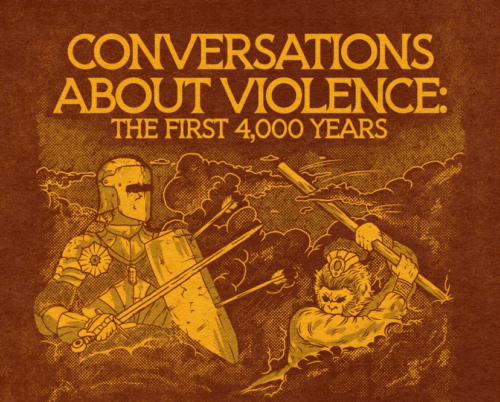
Time/Date: TBA
Instructor: Kamran Sahami
Credits: 3
Description: This seminar-type course examines the current state of scientific thought on the question of alien life and civilizations most often attributed to physicist Enrico Fermi. In 1950 Fermi initiated a series of informal discussions among his Los Alamos colleagues as to the ubiquity of extra-terrestrial life and the probabilities of contact with alien civilizations. He famously asked “Where are they?” citing the lack of any physical evidence for extra-terrestrial life, and hence the scientific paradox which still carries his name. This class will delve into the history of this question, which predates Fermi by millennia, looking at the myriad of proposed solutions to the paradox. The very nature of the question cast an incredibly wide, interdisciplinary net, encompassing the fields of physics, astronomy, chemistry, biology (chemical, organismic ang evolutionary), geology, meteorology, sociology, anthropology, communications theory, and philosophy to list a few. The course will survey the contributions of these fields to the question, drawing often on primary sources, but concentrate more on critical thinking and communication skills, than on disciplinary knowledge. If you have any questions or concerns email Dr. Sahami at [email protected]
Credits: 3
Description: This is an interdisciplinary seminar that explores the topic of the sky and human observation of it. This course brings together the sciences and the humanities through the disciplines of atmospheric science and art. We will study the color and compositions and the importance of the sky using the tools of these disciplines. The course begins with a short historical overview of the shift and differences between a mythic understanding of the cosmos to an empirical, scientific perspective. Students will learn about physical causes of atmospheric phenomena and the depiction of these phenomena in artworks throughout history. Students will engage in projects involving citizen science, data collection, and the production of their own art and personal reflection on the importance of the sky. Sessions will include guest speakers sharing varied modes of interpreting celestial colors.
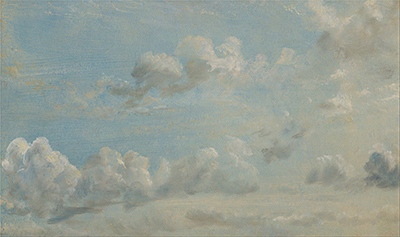
Faculty: Dr. Caleb Cohoe
Offered: M/W 12:30-1:45
Description: Does death end our existence or can we continue on in some way? What sort of pleasures or pains await in an afterlife? Is continued bodily possible or would a future life proceed entirely apart from the body? If there is an afterlife, what is its purpose or value? We will look at the approaches to this question found in a wide variety of ancient and medieval thinkers, from Homer and the authors of Ecclesiastes and early Buddhist texts to Plato, Sophocles, Lucretius, and Cicero and on to the medieval era with Augustine, Abu Hamid al-Ghazali, Moses Maimonides, Thomas Aquinas, and Dante. We will also consider the broader implications that these questions have for our overall view of the world and our place in it, comparing theistic accounts of the world with atheistic and naturalistic accounts. Through this course we will come to appreciate how careful reflection on these issues can help us to better understand our own beliefs and those of others. Your final project will involve analytic and imaginative engagements with depictions of death and the afterlife and your own reflections on the value of life.
Credits: 3
Description: This course critically reviews Asian American history and examines its relevance to contemporary issues in the U.S. It employs an interdisciplinary approach to examine the intersectionality of power, race, class, gender, and internal marginalization in shaping Asian American experiences. Topics include: racial formation of Asian American ethnic identities; historical roots of discrimination and anti-Asian violence (with special topics on Asian American women and Asian Americans in Colorado); negotiation of Asian American identities and culturally distinctive coping strategies; the myth and consequences of “Model Minority”; the relevance of the “Sojourner Hypothesis” in the 21st century; and generations of Asian American social movements aiming at achieving equality and justice for all.

| Description: Language is central to our social existence because it offers us such a rich resource for communication. But it is argued that language is also deeply connected to how we perceive and experience the general world, both socially and physically. And as much as we think through language to fill our minds with intangible abstractions, we embody language to make the abstract tangible. But just how do we do this? There’s also the idea that such linguistic sense making is shaped culturally, so language would serve as a means to maintain sociocultural order as well as create sociocultural difference and variation. Through this course, students examine such ideas, along with the research, debates, and a bit of the history around the interconnection of language, body, culture, and mind.
|
| Description: The belief that the U.S. is the land of opportunity-a place where social mobility is truly possible- lies at the heart of many narratives on the American Dream. This course exploresthe history of the concept of the American Dream, the ways it has been depicted, and howit is etched into national identity. Students examine the relationship between the AmericanDream and democratic values and discuss the relevance of this concept to lived realities inthe U.S. today.
This seminar will include selections from many kinds of texts as a means for examining the topic of the American Dream including: critical theory, journalism, political commentary,short fiction, novel and film. Topics will include: theories of social class and socialmobility, the relationship between the American Dream and work, the differentideological currents that tend to characterize narratives on the American Dream, the roleof ideology and cultural production in society, obstacles that stand in the way of achievingthe American Dream, and the mythic status of the American Dream vs. lived realities.
|
| Description: This course will investigate the nature of podcasts as a relatively new medium where many Americans turn for news, entertainment and education. We will investigate the medium as it pertains to the current cultural moment, as well as create our own weekly podcaston a subject agreed upon by the class as a whole. |
| Description: This course will investigate the history of agriculture, the development of modern foodsystems, US agricultural policy, the environmental impacts of industrial food production, andthe socioeconomic drivers of the global agricultural market. The course will also investigatealternatives to the modern industrial agricultural system including organic farming, slowfood, eating local, and urban farming. Classroom activities will emphasize the complexity andthe interconnected nature of the modern agriculture system. The course will feature field tripsto sustainable farming operations and guest speakers from local farms and/or restaurants.
|
| Description: This course will explore humor in literature, media and culture. We will identify subgenres of humor, including farce, slapstick, dark,broad, romantic, irony, satire and stand-up. We will interrogate what makes us laugh, how different societies and cultures engage withhumor, how gender, race and class are represented in humor, and particularly how humor can be used to create meaningful change inpersonal lives as well as in society. |
| Description: This colloquium will incorporate the 1 Book/1Project/2 Transform selection A Mind Spread Out on the Ground by award-winning Native author Alicia Elliott. We will use Elliott ‘s memoir along with other readings from psychology , philosophy, sociology, and works of fiction to expand our understanding of issues like intergenerational trauma, oppression, mental illness, parenying, poverty, gentrification, and nutrition. We will explore individual and systemic barriers to empathic understanding. In addition to discussions, written reflections, and student projects, this course will feature guest speakers, community-based learning, and a visit from author Alicia Elliott. |
| Description: This colloquium focuses on our social lives from two main perspectives. The first perspective is in terms of our
first-person, lived experiences. What is it “like” to be around friends and family as opposed to strangers on the street or anonymous drivers in the cars next to you? Is there a specific experience associated with belonging to a political community? Sometimes we interact seamlessly with other people without even noticing the details of our experience. In other cases, the fact that we are not alone truly (or perhaps annoyingly!) comes to the fore. The complexity of these experiences has been described in detail by philosophers, sociologists, psychologists, novelists, among others. The first half of our course will explore the nature of these kinds of descriptions and compare them to our own first-person plural experiences. The second focus of this course is quantitative and qualitative social data. Data and modeling techniques attempt to present representations of reality by way of simplifying complexity. Given the complexity of our social experiences, though, what should we make of the ubiquitous attempts that present human beings simply in terms of our data? Governments, schools, and businesses frequently create data-based profiles and narratives for us and use that kind of data along with social network analyses to make decisions. How accurate can these data depictions be, and how show we feel about being simplified in these ways? After digging into the social world oriented in terms of data and models of society, we will then be in a prime position to evaluate similarities and differences between sociality as experienced from an intimate, first-person point of view and sociality from the more removed vantage point of data.
|
Credits: 1
Prerequisite(s): “C” or better in ENG 1020 or ENG 1021, Junior or Senior standing, Enrollment in the Honors Program and Permission from the Honors Director.
Description: This course is taken prior to the Senior Honors Thesis (HON 4950) and is only open to Honors students. This course familiarizes students with project organization and the scope and proper format of an undergraduate thesis project. Each student develops: a thesis statement, a project outline, an initial bibliography and a working abstract. Students also identify a primary Thesis Advisor for their projects. The Thesis Advisor is a faculty member with expertise in a discipline closely related to the topic of the thesis project.
Note: This course must be completed with a B- or better in order to advance to the Senior Honors Thesis.
Credits: 3
Prerequisite(s): HON 4948 with B- or better, Senior standing, Enrollment in the Honors Program and Permission from the Honors Director, approval from student’s department/degree program if taken in place of Departmental Senior Experience course.
Description: The Honors Thesis is the culmination of the Honors undergraduate experience. In this course, students complete an independent research and/or creative project under the direction of a primary Thesis Advisor and the Honors Director. The Thesis Advisor is a faculty member with expertise in a discipline closely related to the topic of the thesis project. Students submit a written thesis and deliver a public oral presentation of their work.
Note: Students are required to receive approval from their department chair if this course is taken in place of a departmental Senior Experience course. This course must be completed with a B- or better in order to count for Honors credit.
University Requirement(s): Senior Experience
Credits: 1
Prerequisite(s): HON 4948 with B- or better, Senior standing, Enrollment in the Honors Program and Permission from the Honors Director
Prerequisite(s) or Corequisite(s): This one-credit course must be paired with an upper division departmental Senior Experience, research or capstone course
Description: The Paired Honors Thesis is the culmination of the Honors undergraduate experience. This one-credit course must be paired with an upper division departmental Senior Experience, research or capstone course. In this course, students complete an independent research and/or creative project under the direction of a primary Thesis Advisor and the Honors Director. The Thesis Advisor is a faculty member with expertise in a discipline closely related to the topic of the thesis project. Students submit a written thesis and deliver a public oral presentation of their work.
Note: This course must be completed with a B- or better in order to count for Honors credit.